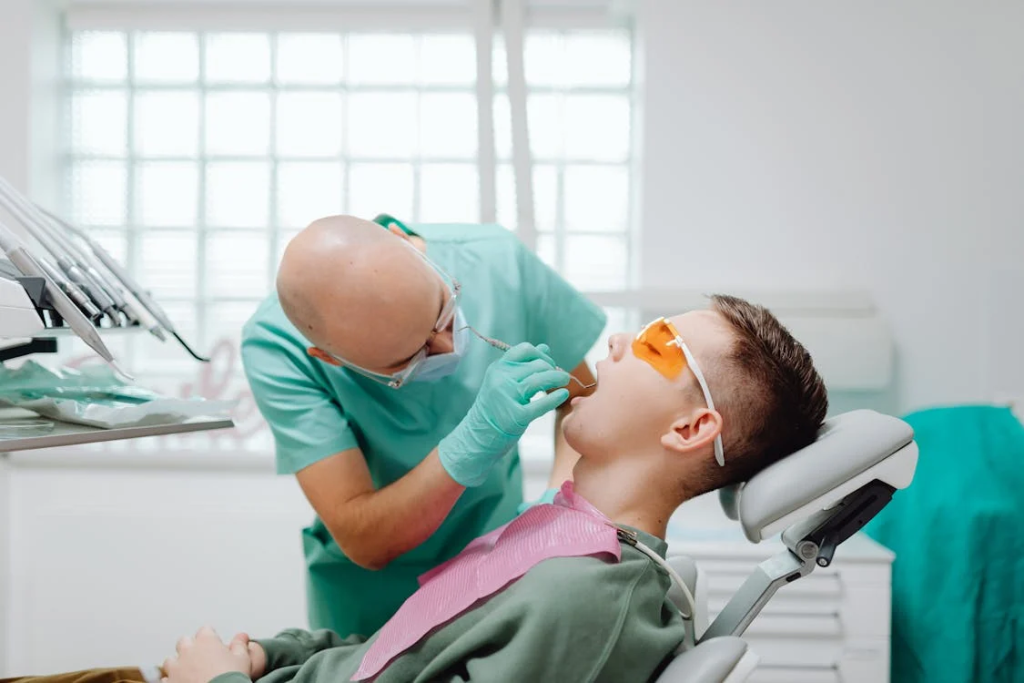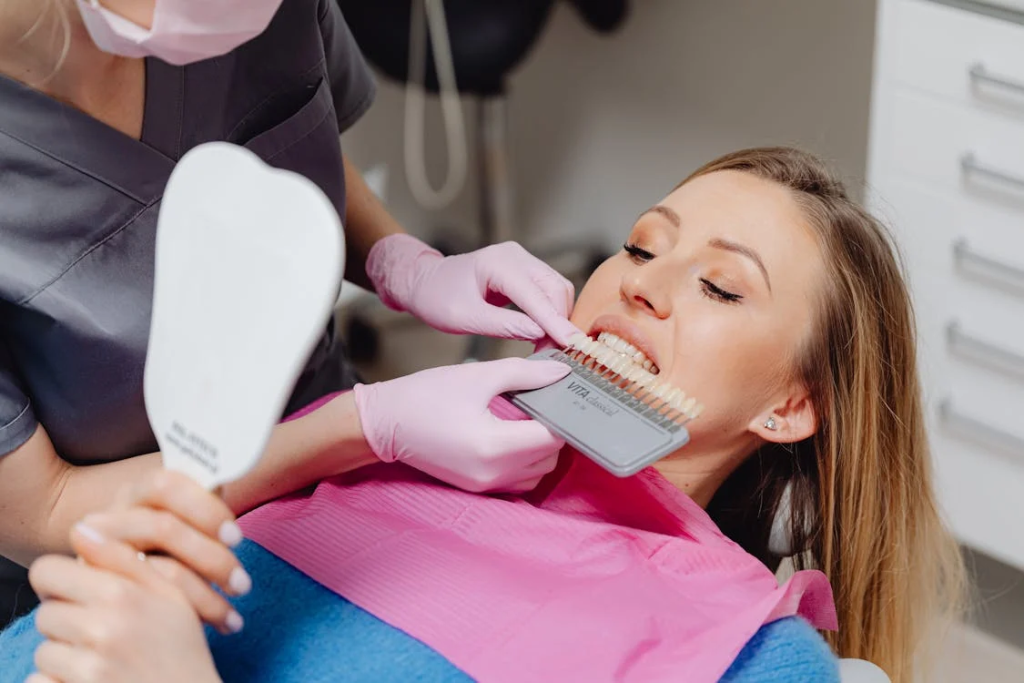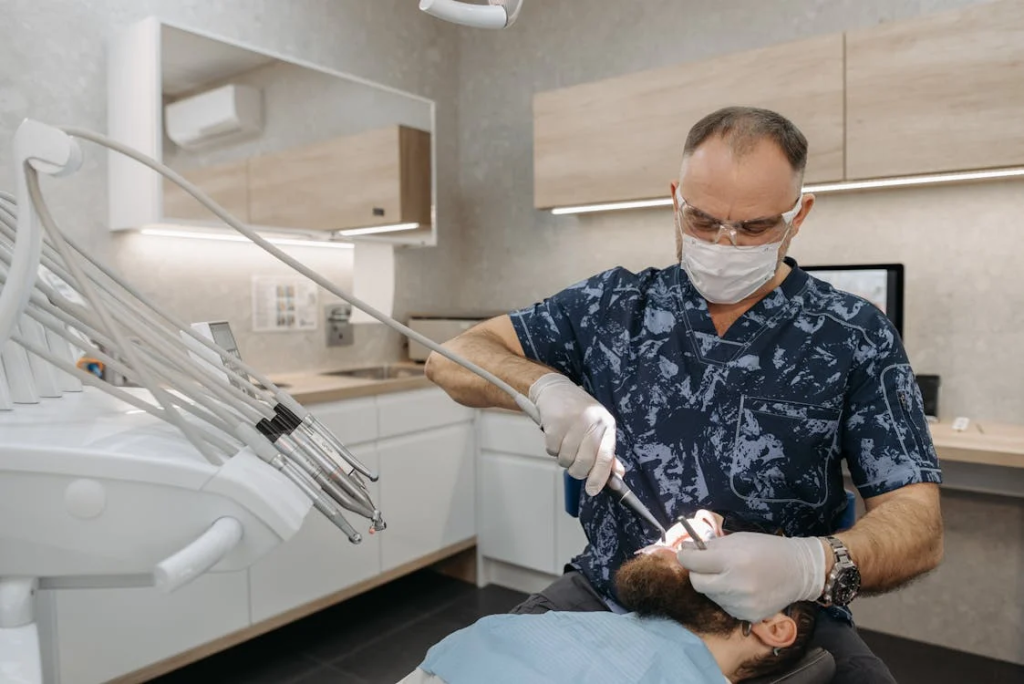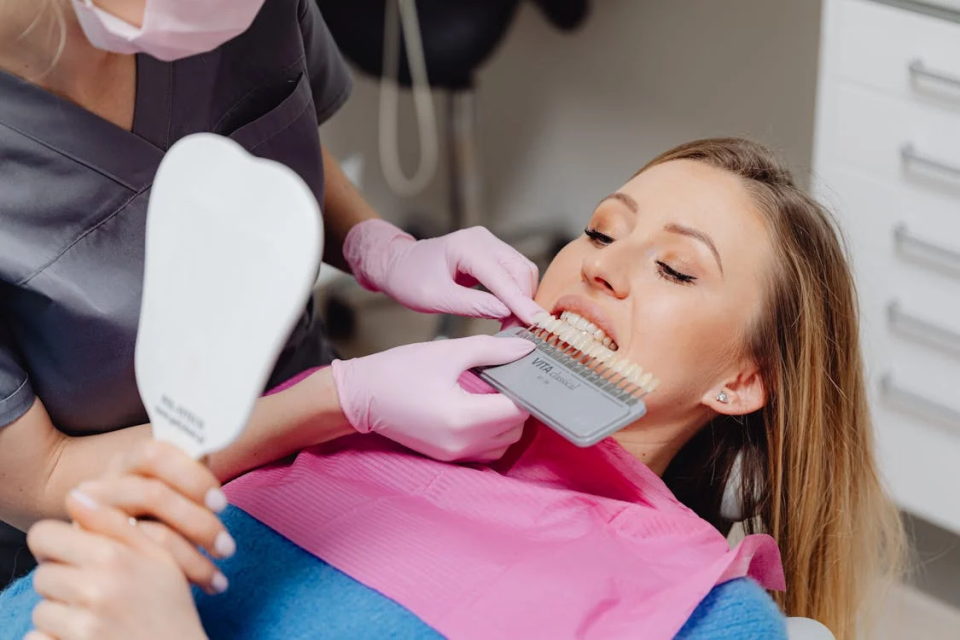Key Highlights
- Follow your dentist’s post-operative care instructions diligently
- Use cold compresses to manage swelling and pain
- Take prescribed pain relievers as directed
- Maintain a soft food diet to avoid irritation
- Stay hydrated and avoid smoking and alcohol for optimal recovery
Introduction

Getting dental implants and a dental crown can help you have a healthier and more confident smile and contribute to a healthy smile overall. At Rosewood Dental, we accept all major health funds and offer a comprehensive range of services and dentistry services, including high-quality dental implants in Grandchester and Plainland. Your comfort is very important to us during the whole process. The procedure usually does not hurt much, but you might feel some soreness afterward, possibly similar to a toothache. This blog post will show you some good ways to manage pain after dental implant surgery in Grandchester. Following these tips can help you have a smooth and comfortable recovery.
Effective Ways to Manage Pain After Dental Implant Surgery

Feeling some pain after dental implant surgery is very normal. It is important to take care of this pain so you can heal well. Luckily, there are several ways to help reduce pain and improve your recovery.
If you follow the advice given by your dentist in Grandchester and use the pain management tips in this blog, you can lower your discomfort and get back to your normal life faster.
1. Follow Your Dentist’s Post-Operative Care Instructions
Your dentist will give you clear care instructions for after your procedure. It is very important to follow these instructions closely. This will help you heal well and reduce the chance of problems.
The instructions will probably include tips on how to clean your mouth, what foods to avoid, and how active you can be while you recover. Following these steps will help your implants connect with your jawbone in the best way.
Keep in mind that each patient is unique. Your dentist’s advice is based on their knowledge and your situation.
2. Use Cold Compresses to Reduce Swelling and Discomfort
Applying cold compresses to the area that had the dental implant can help reduce swelling and lessen pain. Cold temperatures make blood vessels shrink. This helps cut down inflammation and numb the area.
To use a cold compress, take a thin cloth and wrap it around a bag of frozen peas or an ice pack. Place it gently on your cheek where the surgery was done for about 15-20 minutes. You can do this every hour for the first 24-48 hours after your surgery.
However, be careful not to put the ice pack directly on your skin. It can cause ice burns. Also, make sure to take breaks after using it. This lets your skin return to its normal temperature.
3. Take Prescribed Pain Medications as Directed
Your dentist might give you pain medicines after your dental implant surgery. It is very important to take these medicines exactly as your dentist tells you. Follow the amount and timing they recommend.
Taking your pain relievers as instructed will help control your pain while you recover. Never take more than what your dentist says or stop taking the medicine without talking to them first.
If you feel any strange side effects or if your pain does not go away even after taking the medicine, call your dentist right away. It is important to keep in touch so you can get the right care.
4. Use Over-the-Counter Pain Relievers if Necessary
In addition to the pain medicine your dentist gives you, they might suggest using over-the-counter pain relievers. This includes options like ibuprofen or acetaminophen to help with mild to moderate pain.
These medicines can help reduce swelling and offer extra pain relief. Make sure to read the label on the medicine and follow the instructions. If you have any questions, you should talk to your dentist.
Keep in mind that over-the-counter pain relievers are for short-term use only. If your pain does not go away or gets worse, let your dentist know so they can check on it further.
5. Stick to a Soft Food Diet to Avoid Irritation
After dental implant surgery, it is important to stick to a soft food diet. This helps avoid any irritation to the surgery area and supports healing. Hard, crunchy, or chewy foods can put pressure on the implants. This may cause discomfort and slow down the healing process.
Choose foods that are easy to chew and swallow, like mashed potatoes, yogurt, smoothies, soup, scrambled eggs, or cooked vegetables. As your mouth heals, you can slowly start to add more textured foods back into your diet.
By following a soft food diet, you will reduce discomfort and give your dental implants the best chance to heal and settle in properly.
6. Stay Hydrated to Promote Healing

Adequate hydration is very important for our health. It is especially vital when you are healing after dental implant surgery. Drinking enough water helps keep your tissues moist. This supports good blood flow and helps your body heal naturally.
Water also helps get rid of waste and bacteria from your mouth. This cuts down the chances of getting an infection. Plus, it can help with dry mouth, which some pain medications may cause.
Try to drink eight glasses of water each day. You might also want to use a straw. This can reduce contact with the area where you had surgery, especially during the first part of healing.
7. Maintain Good Oral Hygiene Without Disturbing the Implant Site
Maintaining good oral hygiene is crucial after dental implant surgery, especially if you’ve chosen dental implants in Grandchester. It helps to prevent infection and promotes healing. Be sure to avoid disturbing the implant area when brushing and flossing.
Your dentist will provide clear instructions on how to care for your teeth and the implant area. For the first few days, gently brush your teeth with a soft-bristled toothbrush, avoiding the surgical site. You can also rinse your mouth lightly with salt water or an antibacterial mouthwash, with your dentist suggesting the best options. Regular use of mouthwash keeps the area clean and helps reduce bacteria, ensuring the success of your dental implants in Grandchester.
8. Avoid Smoking and Alcohol for Optimal Recovery
Smoking and drinking alcohol can slow down healing and lead to problems after dental implant surgery. Both can irritate the surgery area, delay healing, and even make it harder for the implant to bond with the jawbone.
Nicotine in cigarettes reduces blood flow, which means the surgery area gets fewer nutrients and oxygen needed for healing. Alcohol can affect blood clotting, raising the chance of bleeding and infections.
To recover well and to ensure your dental implants are successful over time, it is best to avoid smoking and alcohol for at least two weeks after your surgery or follow your dentist’s advice.
9. Rest and Allow Your Body to Heal
Adequate rest is very important after dental implant surgery. It helps your body heal and recover well. After the surgery, your body needs time to fix tissues, reduce swelling, and fight any infection.
If you do heavy lifting or strenuous exercise, it can tire your body and take energy needed for healing. Such activities can also increase blood flow to where the surgery was done, which might cause bleeding or swelling.
Rest does not mean you have to lie in bed all day. It just means you should take breaks, avoid hard work, and pay attention to what your body tells you. Proper rest is key for a smooth and successful recovery.
10. Keep Your Head Elevated to Minimize Swelling
Keeping your head up after dental implant surgery can help reduce swelling. This works by limiting blood flow to the area where you had surgery. When you are lying flat, fluids can collect in your face and head.
To avoid this, try using one or two extra pillows while you sleep or relax. This will help with proper drainage and lower swelling. This easy trick can make you feel much better as you recover.
You should keep your head elevated for at least 48 to 72 hours after the surgery to see the best results in swelling reduction. Using cold compresses along with this tip can make it even more helpful.
11. Contact Your Dentist If Pain Persists or Worsens
After dental implant surgery, it is normal to feel some discomfort. However, if your pain lasts or gets worse, you should call your dentist right away. Most discomfort goes away in a few days, but ongoing or increasing pain may need attention.
Your dentist is the best person to help you with any worries during your healing process. They can check your situation, figure out why you’re feeling discomfort, and suggest the right treatment or changes to your care plan.
Getting help early can often stop small issues from turning into bigger ones, helping you recover more quickly and easily.

Conclusion
In conclusion, managing pain after dental implant surgery is very important for healing smoothly. By following your dentist’s advice, using cold packs, and taking the medicines your dentist gives you, you can lessen the pain. Remember to keep your mouth clean, eat soft foods, and drink plenty of water. Stay away from smoking and alcohol to help you heal better. Make sure to rest and give your body time to recover. Keep your head raised to help reduce swelling. If the pain does not go away, contact your dentist quickly for more help. Your comfort and health after surgery are very important for a good recovery.
Frequently Asked Questions
What can I eat after getting dental implants?
After getting dental implants in Grandchester, QLD, it is best to eat soft foods. Select foods that are easy to chew and feel gentle on your gums. Good options include yogurt, applesauce, and cooked vegetables.
How long does the pain typically last after getting dental implants?
Pain after getting dental implants usually goes down in about a week. But the healing time can be different for everyone. That’s why it’s important to talk to your dentist in Grandchester for advice on how to manage your pain.
Are there any specific instructions or guidelines to follow for pain management post dental implant surgery in Grandchester?
Your dentist in Grandchester, QLD will give you detailed care instructions after your dental implant surgery. These instructions will include how to manage pain and what medications to take. It is very important to follow these guidelines closely.

